
How quickly things change. Just three weeks ago, most of us would have agreed with the contention that business should be planning for a two-term/10-year Labour government. But events in the last few weeks have shifted things.
The first event was the budget. Despite any amount of attempted gloomy mood-setting ahead of its delivery, the budget had a distinctly chilly reception from most business audiences and an apoplectic response from farmers.
Indeed, from conversations over the last few days with a number of food and drink CEOs, I sense their concern has only deepened as the full impact of the National Insurance and national minimum living wage increases has been assessed. While some small businesses have been exempted from the National Insurance changes, for the likes of Tesco, the hit is absolutely massive. The additional costs amount to up to 40% of annual operating profit.
Investors – including those who manage our pensions – will not accept carrying that cost in reduced dividends. So food prices will have to rise. That means a significant twist to food price inflation, shredding the Bank of England’s inflation forecast of 2%-2.5% over the next five years.
We can expect more substantial tax rises over the next two or three years. My guess is food price inflation will be much closer to 5% through most of Keir Starmer’s first term.
But aside from the practical difficulties of accommodating those increases, the Chancellor has bequeathed something else that I hear is really bothering business leaders. They noted it took several days to extract definitive explanations of if and how the changes applied to GP surgeries, care homes, hospices and pharmacies.
That’s just poor government. It speaks either to a lack of grip or to the unwillingness of some ministers to be the bearer of bad news. The consequence is, some onlookers are already singing ‘you don’t know what you’re doing’. Government should address this quickly: if you lose the crowd this early, you face a big struggle to recover credibility.
It is important to accept business will be a big beneficiary of improvements in the NHS and the conditions in our schools. It’s more about the need for much better attention to landing the detail and recognising the seriousness of the impact the changes will produce for business.
While those troubles were largely self-inflicted, even more threatening for UK food and drink are the consequences of the US election. Donald Trump’s unexpectedly decisive win poses numerous challenges for the industry. It’s not just the threat of tariffs – indeed, it may be that ambassador Peter Mandelson (if appointed) or the brilliant ambassador Karen Pierce (if retained) can conjure up some meaningful exceptions for our products between them.
However, I wouldn’t bet on it. New secretary of state Marco Rubio has been a powerful advocate in the Senate for ‘America first’ policies for food and drink. Hailing from Florida, he is likely to continue those calls around the new president’s table.
As worrying are the choices the UK might have to make as a consequence of Trump 2.0. If tariffs are placed on UK goods, the Starmer government will have to respond or look like poodles. That could make life very uncomfortable for our businesses with a big presence in the US and for the many major US corporations that are household names over here.
Read more:
-
Donald Trump’s proposed tariffs add to olive oil sector’s woes
-
What a Donald Trump presidency will mean for food & drink
-
What Donald Trump’s election win means for global trade
Trump may also demand NATO members boost defence spending to 3% of GDP. That spells more tax rises, cuts to some public services, or taking an axe to the foreign aid budget. The Trump administration will also look disapprovingly at its allies’ trade with China. Another concern is that President Xi’s retaliation to US-imposed tariffs might well include UK businesses.
It may be a comfort that a lot of this didn’t happen last time. However, Trump 2.0 is very different. In 2016, he didn’t expect to win and didn’t have a plan. This time he has a mission and a plan – witness the speedy and relatively smooth appointment of serious, if scary, people to key positions. He remains supremely unpredictable but he will hit the ground running.
So UK food and drink has to do so too. We should be lobbying government to tell us what it expects for us, and of us, if food and drink is hit. That is very simply a matter of food security. And food security is national security.
We should be looking very closely at the business topography of every relationship – supplier or customer – our businesses have in the US. We should use that knowledge to inform making the case in Washington DC for UK business to be exempted wherever possible. We should look at our operating and ownership structures: can they be tweaked to make British companies better US corporate citizens?
Most controversially, I would argue we should be pressing those very powerful US businesses that have a big presence here to use their clout on the UK’s behalf in their nation’s capital. They won’t like doing so, but we should encourage them to do so nonetheless. Their presence in the UK market carries some obligations. This is one.
The next few months could be extremely choppy. The winners will be the food and drink businesses that have already planned for this eventuality, or are devoting heavyweight resources to doing so now. It’s late to be starting, but there are still just over 70 days until president Trump takes the oath of office.
Much can be done to mitigate the potential damage which might accrue, but action is required and it is needed now.



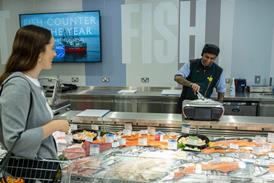



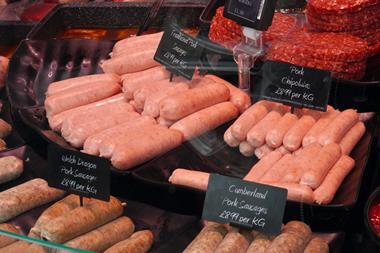


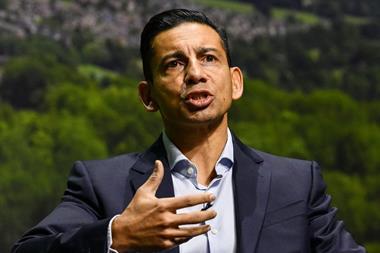
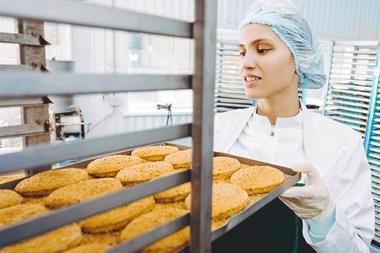
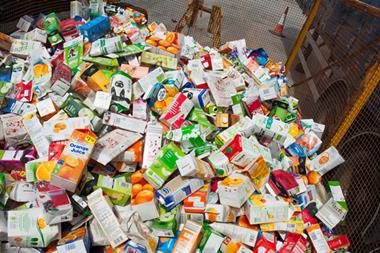






No comments yet